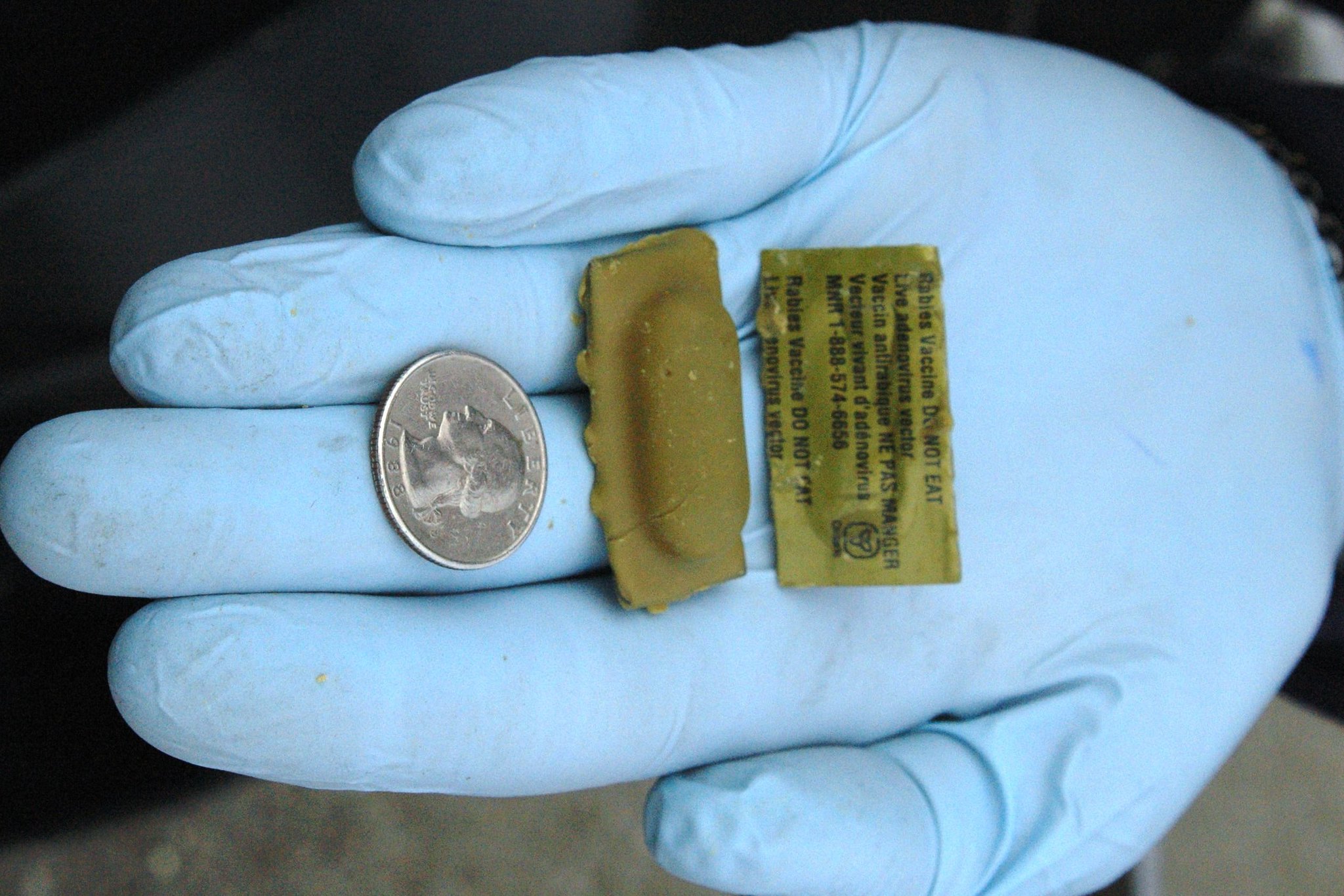Vaccine-laced snacks are being scattered in the wilderness to protect wildlife from rabies
700,000 oral rabies vaccine baits are being distributed in southwest Virginia this fall
Photo by Quinten de Graaf on Unsplash
While rabies is relatively rare in humans in the United States, it's much more common in wildlife like raccoons, skunks, and bats. In fact, rabid raccoons have been identified in every state along the Atlantic coast. Since no wild raccoon wants to be trapped and stuck with a needle, the vaccines are instead put into baits, which the raccoons find and eat. Now, scientists and wildlife managers in Virginia are distributing a vaccine for raccoons that could prevent them from getting rabies. These baits have been used in the United States in one form or another since the 1990’s in foxes and coyotes as well as raccoons — but the project only recently came to southwest Virginia.

U.S. Department of Agriculture
Although rabid animals are found across the country, so far raccoon rabies is limited to the Eastern Seaboard, and wildlife managers are hoping to use these vaccines to make sure it stays that way. Rabies is a pretty scary disease, so limiting its spread is extremely important. Symptoms, which may not develop for weeks or months after a bite from an infected animal, start off seeming like the flu — a fever, chills, muscle weakness, a headache — but quickly get much worse. The rabies virus attacks the brain and nervous system, and as the disease progresses patients may have anxiety, confusion, psychotic symptoms, a fear of water, and sometimes paralysis before they fall into a coma and die.
Most residents of first-world nations with advanced medical systems rarely worry about rabies because vaccines are readily available for both them and their pets. However, rabies remains a significant threat worldwide, particularly in rural areas of the Global South. Every year more than 59,000 people die from rabies, about half of whom are children under the age of fifteen. Globally, 99 percent of human cases are caused by contact with rabid dogs. Although they have not yet been widely implemented, studies on similar vaccinated baits have shown promise in combating rabies in dogs and thus in reducing risk to humans.





















